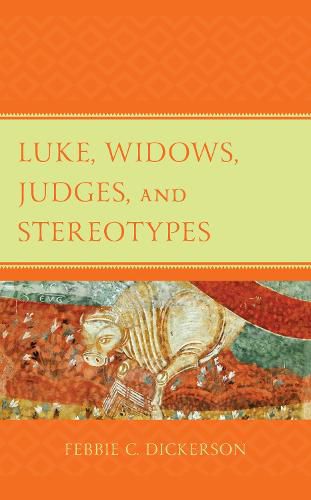Readings Newsletter
Become a Readings Member to make your shopping experience even easier.
Sign in or sign up for free!
You’re not far away from qualifying for FREE standard shipping within Australia
You’ve qualified for FREE standard shipping within Australia
The cart is loading…






Biblical narratives are not simply sacred stories for religious communities: They are stories that provide transformative insight into cultural biases. By putting historical criticism and reception history into dialogue with womanist biblical hermeneutics, this book offers a provocative reading of Jesus’ parable about a widow who confronts a judge and obtains what she seeks by means of physical threat. Rather than simply reading the widow as the model for one who prays always and does not lose heart (Luke 18:1), Dickerson shows that, read in the context of Luke’s wider narrative, the widow is more likely demanding vengeance instead of justice. Dickerson argues that the Evangelist has domesticated this character and robbed her of both her agency and her moral ambiguity. Then, taking up African American stereotypes initially used to degrade, debase, and control, and reading them into and in light of the parable, Dickerson argues that African American women can both reclaim and find strength in the parabolic and stereotypical figures alike.
$9.00 standard shipping within Australia
FREE standard shipping within Australia for orders over $100.00
Express & International shipping calculated at checkout
Biblical narratives are not simply sacred stories for religious communities: They are stories that provide transformative insight into cultural biases. By putting historical criticism and reception history into dialogue with womanist biblical hermeneutics, this book offers a provocative reading of Jesus’ parable about a widow who confronts a judge and obtains what she seeks by means of physical threat. Rather than simply reading the widow as the model for one who prays always and does not lose heart (Luke 18:1), Dickerson shows that, read in the context of Luke’s wider narrative, the widow is more likely demanding vengeance instead of justice. Dickerson argues that the Evangelist has domesticated this character and robbed her of both her agency and her moral ambiguity. Then, taking up African American stereotypes initially used to degrade, debase, and control, and reading them into and in light of the parable, Dickerson argues that African American women can both reclaim and find strength in the parabolic and stereotypical figures alike.